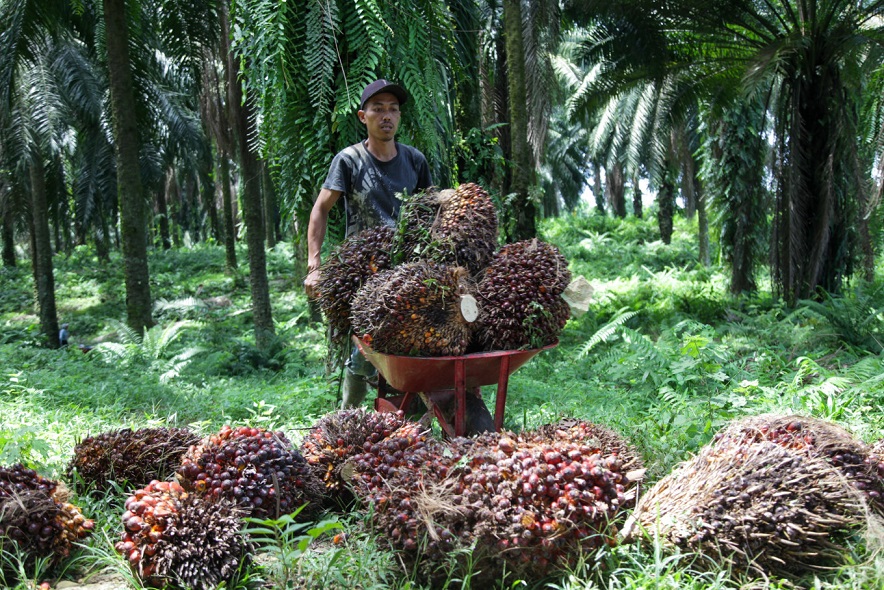News
BMKG Warns of Climate Impacts on Plantations
Apriadi Gunawan (The Jakarta Post) September 27, 2024 A worker transports fresh fruit bunches on May 12, 2022 at Namorambe plantation in Deli Serdang, North Sumatra. (AFP/Andi)
A worker transports fresh fruit bunches on May 12, 2022 at Namorambe plantation in Deli Serdang, North Sumatra. (AFP/Andi)
The Meteorology, Climatology, and Geophysics Agency (BMKG) has warned that the global temperature rise due to climate change poses a serious challenge to the country’s plantation sector.
Citing a 2023 World Meteorological Organization (WMO) report during a discussion on Monday in Medan, North Sumatra, acting BMKG head Dwikorita Karnawati said last year was the hottest year globally in the 174 years since temperature records began.
She noted that last year’s global temperatures even surpassed the previous records in 2016 and 2020, adding that 2023 was the second-hottest year on record in Indonesia, after 2016.
Dwikorita said North Sumatra was among the country’s key climate observation centers for monitoring air temperature.
"Air temperature monitoring has been conducted by the Deli Serdang Climatology Station in North Sumatra for more than 70 years," she said at the National Climate Change Exposition, titled "Towards a Century of Climate Observation in North Sumatra".
The current increase in global temperatures was having adverse effects, including more frequent and intense heat waves, storms and extreme weather, Dwikorita said. If this situation was not addressed promptly, it could lead to economic losses that affected human lives.
She noted that the plantation and agriculture sectors were among those most affected by the global temperature rise, as warmer air temperatures led to lower rainfall and subsequently, water scarcity.
"North Sumatra will be the region most affected by the negative impacts of climate change because it has a large number of plantations," Dwikorita said.
The province is a major plantation hub and home to three large state-owned plantations, as well as hundreds of large private plantations, which produce key commodities including palm oil, rubber, coffee, cocoa and tobacco.

